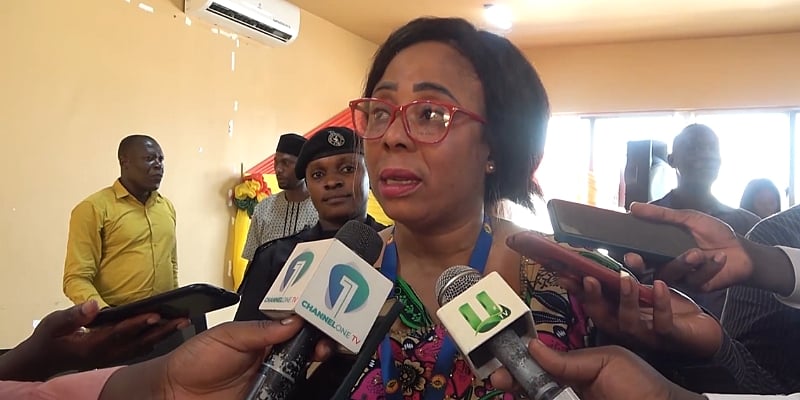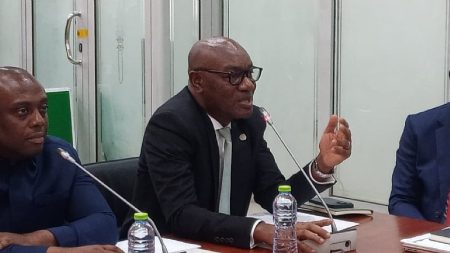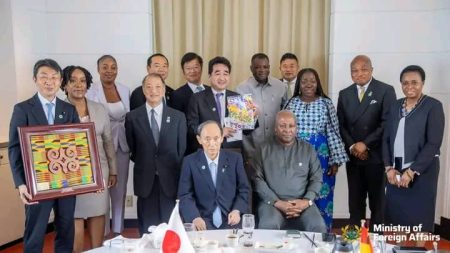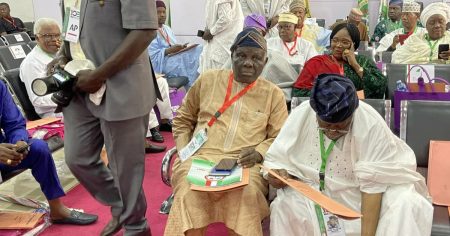The Shai-Osudoku by-election, held on Friday, July 11th, to finally determine the constituency’s parliamentary representation after a six-month delay, became a stage for accusations of vote-buying and violent disruptions. The incumbent National Democratic Congress (NDC), represented by Greater Accra Regional Minister Linda Ocloo, faced allegations from the opposing New Patriotic Party (NPP) of influencing voters through monetary incentives. Mrs. Ocloo, also the Member of Parliament for Shai-Osudoku, responded defiantly to these accusations, dismissing them as commonplace in electoral politics and challenging the NPP to engage in similar practices if they felt compelled. Her justification for the monetary distributions centered on covering transportation costs for party loyalists traveling from distant locations to cast their votes, including individuals coming from as far as Kumasi. This sparked a debate about the ethical implications of such practices and their impact on the integrity of the electoral process.
Mrs. Ocloo’s comments ignited a controversy over the blurred lines between voter mobilization and vote-buying. Her argument rested on the premise that providing financial assistance to loyal party members for transportation expenses was a legitimate practice, distinct from bribing voters to sway their choices. She questioned the notion of compromised integrity, suggesting that if an individual was already committed to voting for a particular candidate, providing financial aid for transportation wouldn’t influence their decision. This stance raised concerns about the potential for such practices to create an uneven playing field, particularly disadvantaging parties with fewer resources to mobilize supporters from far-flung areas. The debate highlighted the need for clearer regulations and guidelines surrounding campaign finance and voter mobilization to ensure fairness and transparency in elections.
The by-election, which involved 19 polling stations, was marred by disturbances and acts of violence. One notable incident occurred at St. Peter’s Polling Station, where voting was temporarily suspended due to a violent intrusion by unidentified thugs. Several individuals, including journalists covering the election, were reportedly assaulted during the disruption. This incident underscored the vulnerability of the electoral process to intimidation and violence, raising concerns about the safety of voters and election officials. The disruption also cast a shadow over the legitimacy of the election results, raising questions about the potential impact of the violence on voter turnout and the overall fairness of the process.
The Shai-Osudoku by-election became a microcosm of broader challenges facing Ghana’s electoral system. The accusations of vote-buying, whether justified as transportation assistance or viewed as outright bribery, highlight the persistent issue of money’s influence in politics. This practice, regardless of its perceived intent, raises questions about the accessibility of political participation for all citizens, particularly those from marginalized communities with limited financial resources. The incident of violence at St. Peter’s Polling Station further underscores the need for strengthened security measures to protect the integrity of the electoral process and ensure the safety of all involved. These challenges necessitate a comprehensive review of electoral laws and procedures to promote transparency, fairness, and the peaceful exercise of democratic rights.
The unfolding events in Shai-Osudoku exposed deeper societal questions regarding the role of money and influence in political processes. The Minister’s justification for providing financial support to voters opened a broader discussion about the ethical boundaries of campaign finance and the potential for financial incentives to distort democratic principles. The violence at St. Peter’s Polling Station not only disrupted the electoral process but also highlighted the fragility of democratic institutions in the face of intimidation and violence. This incident served as a stark reminder of the importance of upholding the rule of law and safeguarding the right of all citizens to participate freely and safely in the electoral process without fear of reprisal.
The Shai-Osudoku by-election became more than just a local contest; it served as a reflection of the broader challenges facing Ghanaian democracy. The controversy surrounding vote-buying, coupled with the eruption of violence, highlighted the urgent need for electoral reforms and a renewed commitment to upholding democratic principles. The events underscored the importance of a transparent and accountable electoral system that ensures equal access for all citizens, regardless of their financial standing, and protects the sanctity of the ballot box from intimidation and violence. The lessons learned from Shai-Osudoku should serve as a catalyst for strengthening Ghana’s democratic institutions and promoting a more inclusive and equitable political landscape.














